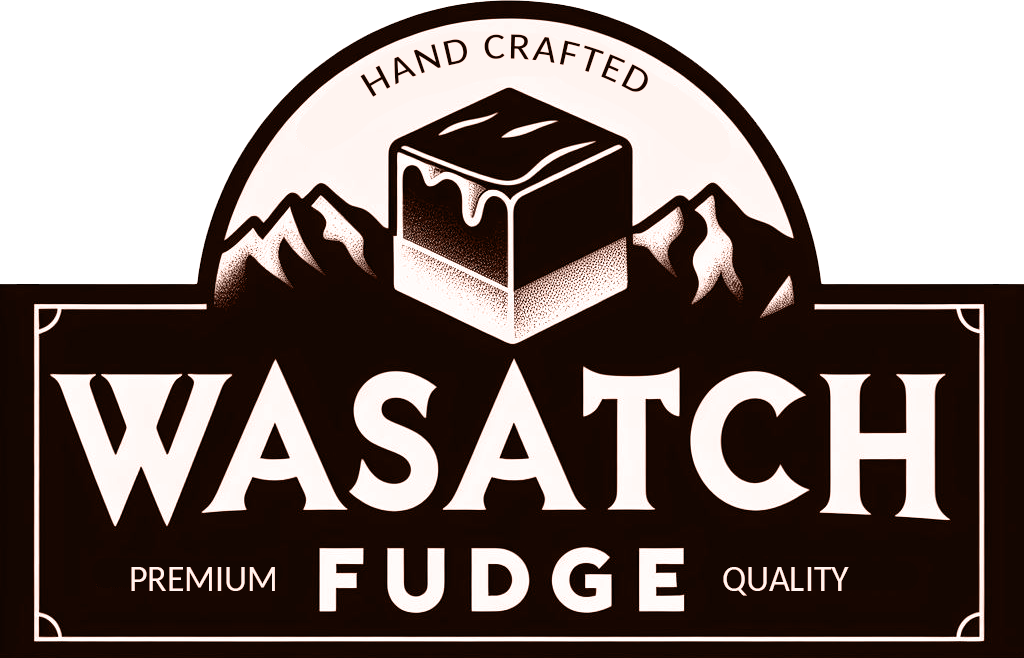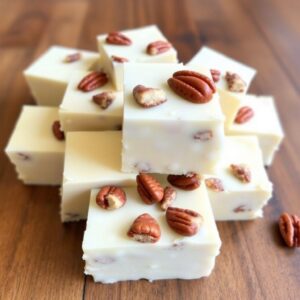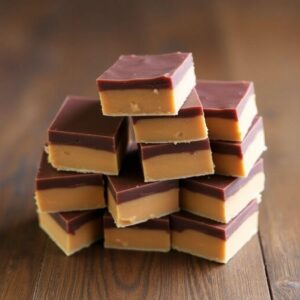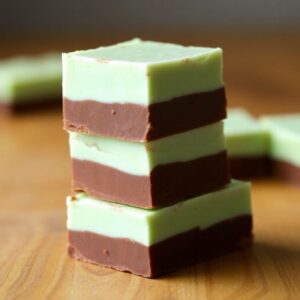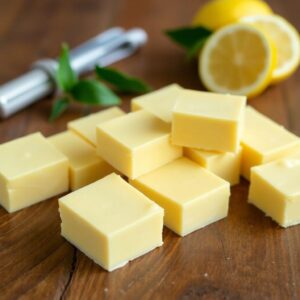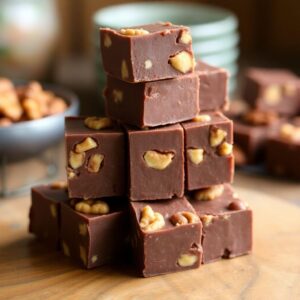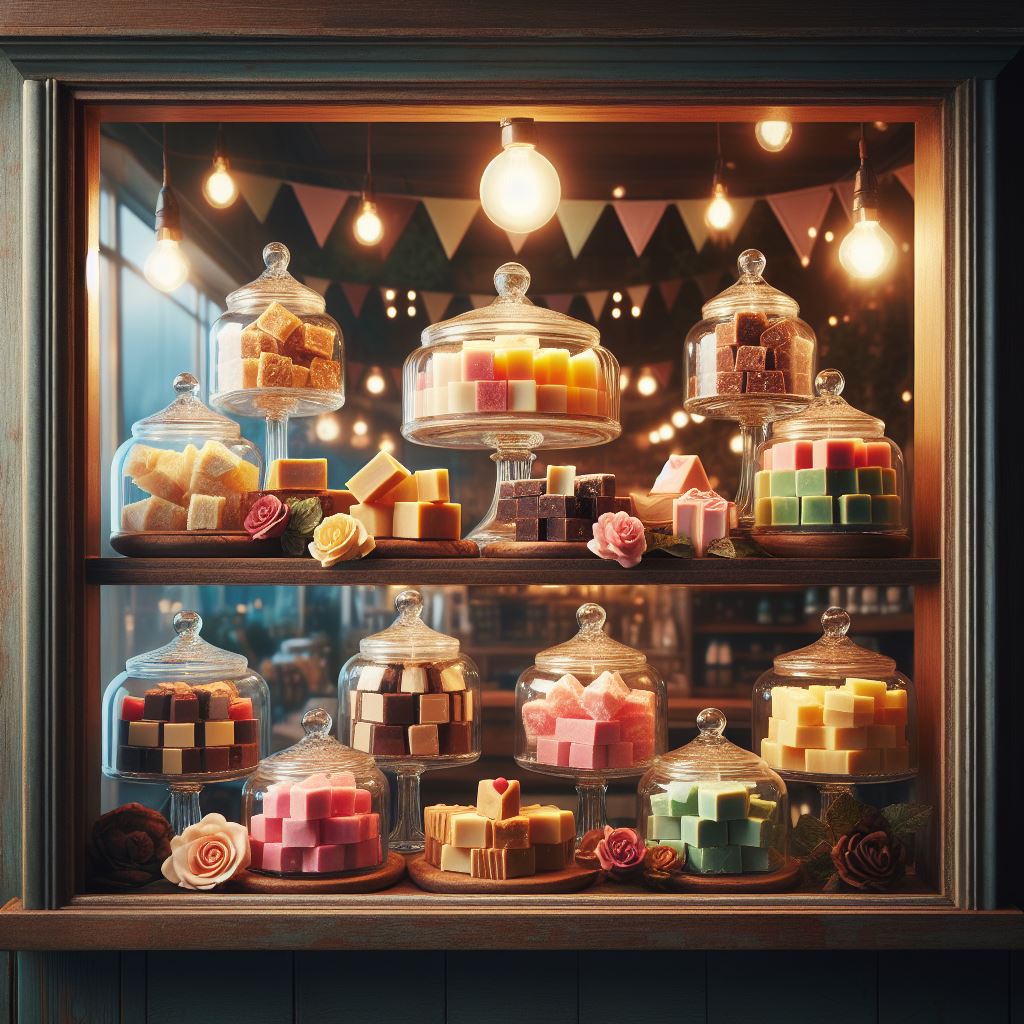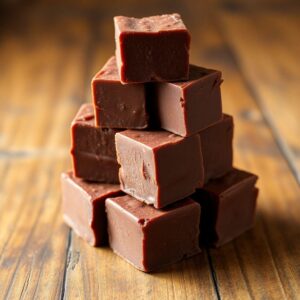what makes fudge fudge and Peanut Butter Fudge explained
Where to find Peanut Butter Fudge near Gramma’s Home?
Okay, here are a few options for making your summary more convincing, ranging from subtle tweaks to more significant revisions. I’ll focus on adding more specific detail and vivid language, and emphasizing the connection between process and quality.
Option 1: (Slightly Enhanced)
This deep dive into the world of fudge, especially peanut butter fudge, demonstrates that creating this beloved confection is far more than just mixing ingredients. The article reveals that the success of fudge hinges on the delicate control of sugar crystallization: meticulously heating the mixture to the precise “soft-ball stage” and then allowing it to cool undisturbed before a final, vigorous beating. Ultimately, the art of fudge-making becomes a powerful metaphor, illustrating that the most rewarding experiences often require patience, precision, and a touch of artistry – proving that the pursuit of excellence is always a delectable endeavor.
Changes Made and Why:
- “Demonstrates” instead of “Highlights”: More active and confident.
- “Hinges on the delicate control of sugar crystallization” instead of “lies in the controlled formation of microscopic sugar crystals”: More evocative and specific about the control needed.
- “Meticulously heating the mixture to the precise ‘soft-ball stage’…” instead of “careful heating to the soft-ball stage”: Emphasizes the precision needed.
- “Powerful metaphor” instead of “reminder”: Elevates the concluding thought.
- “Patience, precision, and a touch of artistry” instead of “love and attention to detail”: More tangible and relatable to the fudge-making process.
- “Delectable endeavor” instead of “worthwhile endeavor”: Connects to the subject of fudge
Option 2: (More Detailed and Evocative)
Beyond a simple recipe, this exploration of fudge, with a focus on the irresistible allure of peanut butter fudge, uncovers the alchemic process behind its melt-in-your-mouth perfection. The article meticulously details how the magic lies in orchestrating the dance of sugar molecules, transforming a simple syrup into a velvety smooth treat. From carefully monitoring the temperature with a candy thermometer, reaching that crucial “soft-ball stage,” to allowing the mixture to cool undisturbed and then unleashing a burst of transformative beating, each step is a testament to the science and art of confectionery. In the end, the creation of exceptional fudge is a sweet lesson: that patience, precision, and a dedication to mastering the finer details can yield extraordinary results, turning simple ingredients into something truly unforgettable.
Changes Made and Why:
- “Alchemic process” and “melt-in-your-mouth perfection”: Adds a more romantic and descriptive tone.
- “Orchestrating the dance of sugar molecules”: More vivid language for the crystallization process.
- Explicitly mentions “candy thermometer” and relates it to the text:
- “Science and art of confectionery”: Highlights the dual nature of fudge-making.
- “Unleashing a burst of transformative beating”: More descriptive of the final step.
- “Turning simple ingredients into something truly unforgettable”: Emphasizes the impact of the process.
Option 3: (Focus on the “Secret” and Gramma’s Recipe)
What’s the secret to fudge that rivals even Gramma’s best batch? This article dives deep into the science behind perfect fudge, especially the peanut butter variety, revealing that achieving that signature creamy texture is about more than just Grandma’s loving touch. It’s about understanding the critical role of sugar crystal formation. By meticulously controlling the heating, bringing the mixture precisely to the “soft-ball stage” (verified with a candy thermometer, of course!), followed by a period of undisturbed cooling and then the crucial, vigorous beating, the process transforms humble ingredients into a delectable masterpiece. This exploration ultimately reveals that even the most cherished family recipes benefit from a dash of scientific understanding, proving that the pursuit of fudge perfection is a sweet and rewarding journey for anyone willing to master the details.
Changes Made and Why:
- Starts with a question to hook the reader.
- Directly references “Gramma’s best batch” to create a relatable connection.
- Emphasizes the “secret” and the scientific understanding needed.
- Specifically mentions verifying the temperature with a candy thermometer
- Highlights the transformation from “humble ingredients to a delectable masterpiece.”
- Reinforces the idea of a “sweet and rewarding journey.”
Key Considerations When Choosing:
- Your Target Audience: Who are you writing for? A general audience, or foodies, or someone else?
- The Tone of the Original Article: Is it lighthearted and fun, or more technical and serious? Choose a summary that reflects that tone.
- The Key Message You Want to Convey: What is the most important takeaway from the article?
No matter which option you choose, be sure to proofread carefully for any typos or grammatical errors. Good luck!
Sweet Memories: Unlocking the Secret of Gramma’s Perfect Fudge
Ever wonder what makes fudge fudge, especially the kind your grandma used to make? That rich, creamy, melt-in-your-mouth goodness that brings back a flood of happy memories? It’s more than just mixing ingredients – it’s about science, technique, and a whole lot of love. This article dives deep into the world of fudge, focusing on peanut butter fudge, and reveals the secrets to achieving that perfect texture and flavor that rivals even Gramma’s best batch. We’ll explore the key ingredients, the cooking process, and the little tricks that make all the difference in creating a truly unforgettable treat. Get ready to unlock the magic of homemade fudge!
TL;DR: Fudge Like Gramma Used to Make
Want to make amazing peanut butter fudge just like your grandma? Here’s the quick version: Fudge is all about controlling sugar crystals. Start with sugar, butter, milk (or cream), and peanut butter. Cook to the right temperature (soft-ball stage!), cool slightly, then beat until it thickens and loses its sheen. Use quality ingredients and don’t overcook! For peanut butter fudge, quality peanut butter is KEY. Adding a touch of vanilla and salt enhances the flavor. Don’t forget to chill it for the perfect slice. Really, what makes fudge fudge in Gramma’s Home is the love and care you put into it!
What Really Makes Fudge Fudge? The Science of Sweetness
So, what makes fudge fudge in Gramma’s Home different from other candies like caramels or toffee? It all boils down to sugar crystals. Fudge is essentially controlled crystallization. When you cook sugar and liquid together, the sugar dissolves. As the mixture heats, the water evaporates, and the sugar concentration increases. If you let it cool undisturbed, you’d end up with giant, gritty crystals – not the smooth, creamy texture we associate with fudge.
The magic lies in breaking down these large crystals into tiny, microscopic ones. This is achieved through the cooling and beating process. By cooling the mixture slightly before beating, you encourage the formation of many tiny crystals rather than a few large ones. Beating introduces air, which further disrupts crystal formation. The result? A smooth, creamy, and decadent fudge that melts in your mouth. Understanding this science is crucial to understanding what makes fudge fudge in Gramma’s Home.
Why Temperature Matters
Temperature is a HUGE factor in getting the right sugar crystallization. You want to hit that “soft-ball stage” (around 235-240°F or 112-115°C). This is where the sugar concentration is just right for forming those tiny crystals. If you undercook it, the fudge will be too soft and won’t set properly. If you overcook it, it will be dry, crumbly, and hard. A candy thermometer is your best friend here! It ensures you’re hitting the sweet spot. Using a candy thermometer to maintain the perfect temperature helps ensure what makes fudge fudge in Gramma’s Home stays consistent from batch to batch.
The Key Ingredients for Fudge Success
While the process is important, using good quality ingredients is also vital for achieving that classic homemade flavor. Here’s a breakdown:
- Sugar: Granulated sugar is the standard choice. It provides the sweetness and forms the basis of the sugar crystals.
- Butter: Adds richness, flavor, and helps create that smooth, creamy texture. Use real butter, not margarine!
- Milk/Cream: Provides moisture and helps dissolve the sugar. Cream will result in a richer, smoother fudge, while milk will create a slightly firmer texture.
- Peanut Butter: The star of our show! Use a creamy peanut butter for the smoothest results. Avoid natural peanut butter with oil separation, as it can affect the texture.
- Vanilla Extract: Enhances the other flavors and adds a touch of warmth.
- Salt: A pinch of salt balances the sweetness and brings out the peanut butter flavor.
These ingredients are the building blocks, but what makes fudge fudge in Gramma’s Home is the quality and proportion of each ingredient.
Crafting the Perfect Peanut Butter Fudge: A Step-by-Step Guide
Now, let’s get to the fun part: making the fudge! Here’s a detailed recipe for peanut butter fudge that will have you feeling like a pro:
Ingredients:
- 2 cups granulated sugar
- 1/2 cup (1 stick) unsalted butter, cut into pieces
- 1/2 cup milk or heavy cream (cream for extra richness!)
- 1/2 cup creamy peanut butter (not natural)
- 1 teaspoon vanilla extract
- 1/4 teaspoon salt
Instructions:
- Prep your pan: Line an 8×8 inch square pan with parchment paper, leaving an overhang on two sides for easy removal.
- Combine ingredients: In a medium saucepan, combine the sugar, butter, and milk (or cream).
- Cook to soft-ball stage: Cook over medium heat, stirring constantly, until the sugar dissolves and the mixture comes to a boil. Insert a candy thermometer and continue cooking, without stirring, until the mixture reaches 235-240°F (112-115°C), the “soft-ball stage.”
- Cool it down: Remove the saucepan from the heat and let it cool undisturbed until it reaches about 110°F (43°C). This is crucial for proper crystal formation. You can use your thermometer to monitor the temperature, or wait about 30-45 minutes.
- Beat in the goodness: Add the peanut butter, vanilla extract, and salt. Beat vigorously with a wooden spoon or electric mixer until the fudge thickens and loses its glossy sheen. This will take several minutes. It should become noticeably thicker and lose its shine.
- Pour and chill: Immediately pour the fudge into the prepared pan and spread it evenly.
- Chill until firm: Refrigerate for at least 2 hours, or preferably overnight, until firm.
- Slice and enjoy: Lift the fudge out of the pan using the parchment paper overhang. Cut into squares and enjoy!
This detailed approach ensures that what makes fudge fudge in Gramma’s Home is replicated with each batch.
Variations on a Theme: Leveling Up Your Fudge Game
Once you’ve mastered the basic peanut butter fudge, you can get creative! Here are a few ideas to take your fudge to the next level:
- Swirl it: Swirl in a ribbon of melted chocolate or marshmallow creme for a decadent twist.
- Add crunch: Mix in chopped nuts (peanuts, walnuts, or pecans), crushed pretzels, or even potato chips for a salty-sweet treat.
- Spice it up: Add a pinch of cinnamon or cayenne pepper for a warm, spicy kick.
- Chocolate Peanut Butter Fudge: Add 1/4 cup of cocoa powder to the sugar mixture for a rich chocolate peanut butter flavor.
Experimenting with different flavors and textures is part of the fun! Remember, what makes fudge fudge in Gramma’s Home is the personal touch and unique flavor combinations.
Troubleshooting Your Fudge: Common Problems and Solutions
Fudge can be a bit finicky, and sometimes things don’t go according to plan. Here are some common problems and how to fix them:
- Fudge is too soft: You likely didn’t cook it to the right temperature. Next time, make sure you reach the soft-ball stage. You can try re-melting the fudge in a saucepan with a little milk or cream, bringing it back to the correct temperature, and then re-cooling and beating.
- Fudge is too hard/crumbly: You probably overcooked it. Unfortunately, there’s not much you can do to salvage it. Be more careful next time and use a reliable candy thermometer.
- Fudge is grainy: This means the sugar crystals were too large. This can happen if you didn’t cool the mixture properly before beating, or if you stirred the mixture while it was cooking. Make sure to follow the recipe carefully and avoid stirring after the sugar has dissolved.
- Fudge is oily: This can happen if you used natural peanut butter with oil separation. The oil will separate from the fudge and make it greasy. Stick to creamy, processed peanut butter for best results.
Knowing these common issues helps you understand what makes fudge fudge in Gramma’s Home and how to avoid common mistakes.
Tips and Tricks for Fudge Perfection
Beyond the recipe, here are some extra tips to ensure your fudge is a success:
- Use a heavy-bottomed saucepan: This will help prevent the sugar from scorching.
- Invest in a good candy thermometer: It’s essential for accurate temperature readings.
- Don’t stir after the sugar has dissolved: Stirring can encourage crystal formation and lead to grainy fudge.
- Cool the mixture undisturbed: This allows the sugar crystals to form properly.
- Beat vigorously: Beating introduces air and disrupts crystal formation, resulting in a smooth, creamy texture.
- Work quickly: Once you start beating, the fudge will set up quickly, so you need to pour it into the pan right away.
- Let it chill completely: This allows the fudge to firm up and develop its flavor.
Paying attention to these details is what makes fudge fudge in Gramma’s Home truly special.
Storing Your Fudge: Keeping it Fresh and Delicious
To keep your fudge fresh and delicious, store it in an airtight container at room temperature. It will last for about 1-2 weeks. You can also freeze fudge for longer storage. Wrap it tightly in plastic wrap and then place it in a freezer-safe container. Frozen fudge will last for up to 3 months. Thaw it in the refrigerator before serving. Properly storing fudge ensures what makes fudge fudge in Gramma’s Home – that delicious flavor and texture – lasts as long as possible.
Expansive Summary: The Essence of Fudge and its Legacy
This deep dive into the world of fudge, particularly peanut butter fudge, unveils that the creation of this beloved confection goes beyond simply combining ingredients. What makes fudge fudge in Gramma’s Home isn’t just the recipe, but a delicate balance of scientific principles and heartfelt techniques. Understanding the importance of sugar crystallization, precise temperature control, and the quality of ingredients are all crucial aspects of replicating the perfect fudge texture and taste.
The article highlights that the success of fudge lies in the controlled formation of microscopic sugar crystals, achieved through careful heating to the soft-ball stage followed by undisturbed cooling and vigorous beating. This process ensures a smooth, creamy consistency rather than a grainy, undesirable outcome. Quality ingredients, such as real butter, creamy peanut butter (avoiding natural varieties due to oil separation), and pure vanilla extract, contribute significantly to the overall flavor profile.
Moreover, the detailed step-by-step recipe for peanut butter fudge offers a practical guide, empowering anyone to attempt their own batch of this classic treat. Variations on the theme, such as swirling in melted chocolate or adding crunchy nuts, encourage experimentation and personalization. Troubleshooting tips provide solutions to common fudge-making challenges, such as fudge that is too soft, too hard, or grainy.
Beyond the technical aspects, the article emphasizes the significance of patience, attention to detail, and a touch of creativity. What makes fudge fudge in Gramma’s Home is often the unspoken ingredient of love and care. It’s the memories associated with sharing homemade fudge with loved ones that elevate it beyond a mere dessert.
The knowledge gained from this exploration can be applied to numerous culinary projects. The understanding of sugar crystallization principles extends to other candies and desserts, such as caramels, toffees, and even homemade ice cream. The emphasis on quality ingredients and precise techniques can be applied to any recipe, resulting in consistently delicious outcomes.
Furthermore, the act of making fudge itself can be a therapeutic and rewarding experience. The process of transforming simple ingredients into a delectable treat can be a source of joy and a way to connect with tradition and family history. Recreating Gramma’s fudge recipe can be a way to honor her memory and share her legacy with future generations. Ultimately, the art of fudge-making serves as a reminder that the best things in life are often made with love and attention to detail, and that the pursuit of perfection is always a worthwhile endeavor.
More on what makes fudge fudge…
- Okay, here’s an exhaustive list of SEO keywords related to “what makes fudge fudge” and “Peanut Butter Fudge,” one keyword per line:
- General Fudge Keywords:
- What makes fudge fudge
- Fudge ingredients
- Fudge recipe
- Fudge definition
- Fudge texture
- Fudge consistency
- Fudge science
- Fudge chemistry
- Fudge making tips
- Fudge troubleshooting
- Types of fudge
- Easy fudge recipe
- Homemade fudge
- Best fudge recipe
- Fudge recipe easy
- How to make fudge
- Fudge cooking process
- Fudge crystallization
- Prevent fudge crystallization
- Fudge graininess
- Smooth fudge
- Creamy fudge
- Fudge variations
- Fudge history
- The origin of fudge
- Fudge desserts
- Fudge candy
- Fudge confection
- Fudge online
- Fudge buy online
- Fudge gifts
- Fudge near me
- Fudge shop
- Fudge store
- Fudge brands
- Fudge flavors
- Fudge shelf life
- Storing fudge
- Fudge storage
- How long does fudge last
- Fudge guide
- Fudge expert
- Fudge secrets
- Fudge techniques
- Fudge tips and tricks
- Fudge for beginners
- Fudge making for dummies
- Fudge cookbook
- Peanut Butter Fudge Keywords:
- Peanut butter fudge
- Peanut butter fudge recipe
- Easy peanut butter fudge
- Homemade peanut butter fudge
- Best peanut butter fudge recipe
- Peanut butter fudge recipe easy
- How to make peanut butter fudge
- No bake peanut butter fudge
- Peanut butter fudge no bake
- Creamy peanut butter fudge
- Smooth peanut butter fudge
- Peanut butter fudge with condensed milk
- Peanut butter fudge without condensed milk
- Peanut butter chocolate fudge
- Chocolate peanut butter fudge
- Peanut butter fudge with marshmallow cream
- Peanut butter fudge with marshmallow fluff
- Peanut butter fudge ingredients
- Simple peanut butter fudge
- Quick peanut butter fudge
- Old fashioned peanut butter fudge
- Classic peanut butter fudge
- Vegan peanut butter fudge
- Dairy free peanut butter fudge
- Gluten free peanut butter fudge
- Sugar free peanut butter fudge
- Keto peanut butter fudge
- Low carb peanut butter fudge
- Peanut butter fudge bars
- Peanut butter fudge squares
- Peanut butter fudge dessert
- Peanut butter fudge candy
- Peanut butter fudge online
- Buy peanut butter fudge
- Peanut butter fudge gifts
- Peanut butter fudge near me
- Peanut butter fudge store
- Peanut butter fudge shop
- Peanut butter fudge brands
- Peanut butter fudge variations
- Peanut butter fudge tips
- Peanut butter fudge tricks
- Peanut butter fudge troubleshooting
- Peanut butter fudge consistency
- Peanut butter fudge texture
- Peanut butter fudge grainy
- Peanut butter fudge crystallization
- Peanut butter fudge setting
- Peanut butter fudge not setting
- Peanut butter fudge too soft
- Peanut butter fudge too hard
- Peanut butter fudge frosting
- Peanut butter fudge topping
- Microwave peanut butter fudge
- Peanut butter fudge microwave
- Peanut butter fudge stove top
- Easy peanut butter fudge recipe
- 3 ingredient peanut butter fudge
- 2 ingredient peanut butter fudge
- Peanut butter fudge with evaporated milk
- Peanut butter fudge with heavy cream
- Peanut butter fudge using peanut butter chips
- Peanut butter fudge without chocolate
- White chocolate peanut butter fudge
- Long Tail and Specific Keywords:
- What is the difference between fudge and chocolate
- Why does my fudge crumble
- How to fix grainy fudge
- Fudge making mistakes
- Best type of chocolate for fudge
- Best kind of peanut butter for fudge
- How to store peanut butter fudge for best results
- How to cut peanut butter fudge neatly
- How long to cook fudge
- Fudge internal temperature
- How to tell when fudge is done
- Secrets to making perfect fudge every time
- Best ingredients for homemade fudge
- Tips for a smooth and creamy peanut butter fudge
- How to make peanut butter fudge with a stand mixer
- Fudge recipe for beginners
- Make ahead peanut butter fudge
- Freezing peanut butter fudge
- Thawing peanut butter fudge
- Gift ideas with peanut butter fudge
- Peanut butter fudge for Christmas
- Peanut butter fudge for holidays
- Peanut butter fudge party favors
- How to package peanut butter fudge
- Peanut butter fudge nutritional information
- Peanut butter fudge calories
- Peanut butter fudge recipe metric
- Peanut butter fudge recipe imperial
- Peanut butter fudge recipe video
- Peanut butter fudge recipe step by step
- This list should give you a very comprehensive starting point for your SEO efforts. Remember to analyze the search volume and competition for each keyword using tools like Google Keyword Planner, Ahrefs, or SEMrush to prioritize your target keywords. Good luck!
